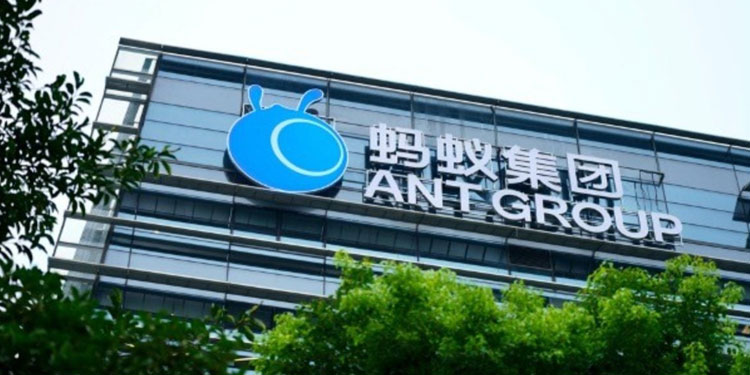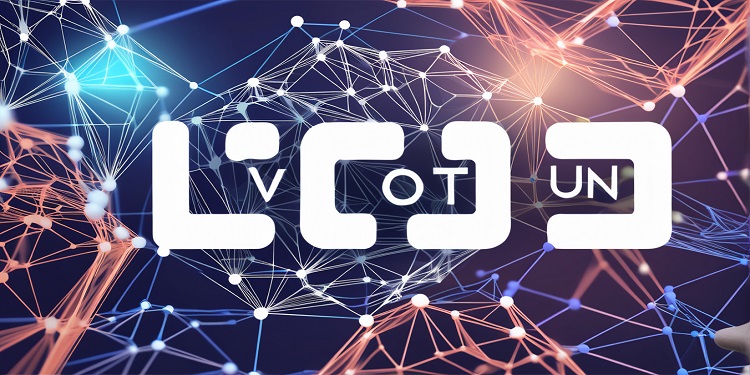 Ant Group, the Chinese fintech giant affiliated with Alibaba Group Holding, has introduced its own large language model (LLM), a technology crucial for training chatbots like ChatGPT, and has launched a new Web3 brand aimed at Hong Kong and overseas markets. This strategic move marks a significant enhancement of Ant Group’s capabilities in generative artificial intelligence (AI) within the financial services sector.
Ant Group, the Chinese fintech giant affiliated with Alibaba Group Holding, has introduced its own large language model (LLM), a technology crucial for training chatbots like ChatGPT, and has launched a new Web3 brand aimed at Hong Kong and overseas markets. This strategic move marks a significant enhancement of Ant Group’s capabilities in generative artificial intelligence (AI) within the financial services sector.
The company, headquartered in Hangzhou, recently unveiled its self-developed “financial LLM” during the “Inclusion Conference on the Bund” event held in Shanghai. This financial LLM is a pioneering development for Ant Group, signaling its commitment to advancing AI-driven solutions within the finance industry. During the conference, Ant’s Vice President, Wang Xiaohang, highlighted their substantial investment in computing power, boasting a staggering 10,000 GPUs (graphics processing units), which has facilitated the rapid adoption of the LLM paradigm across Ant’s entire financial operations.
One notable application of Ant’s financial LLM is its role in enhancing Zhixiaobao, the firm’s consumer-facing “intelligent financial assistant” for wealth management and insurance. The LLM has empowered Zhixiaobao to assist users in various scenarios, including the generation of asset-management plans. Additionally, Ant’s LLM played a pivotal role in the creation of Zhixiaozhu, an application designed to support finance professionals across domains such as investment research, insurance, and marketing.
While the upgraded Zhixiaobao is awaiting regulatory approval before becoming available to users, Zhixiaozhu is currently undergoing further closed testing in collaboration with industry partners. Ant’s new AI model has already demonstrated its superiority over “mainstream general-purpose LLMs,” particularly in financial contexts, according to Wang Xiaohang. Large language models like these, also known as LLMs, are advanced deep-learning AI algorithms capable of performing a wide range of tasks, including content generation, summarization, translation, and prediction, often leveraging vast datasets.
Ant Group’s foray into the LLM space is emblematic of the intense competition among China’s tech giants to develop innovative services akin to ChatGPT, with the government actively pushing for a national standard for LLMs as part of its broader AI regulatory efforts. Notably, other major Chinese tech companies like Baidu, Huawei Technologies, Tencent Holdings, and Alibaba have also introduced their respective LLMs, notwithstanding the substantial investments required for the development of the requisite computing infrastructure.
Eric Jing Xiandong, Chairman and CEO of Ant Group, emphasized that the rise of LLMs would have a transformative impact on commercial activities, likening it to the initial ripples in a pond. This transformation is expected to extend across various domains, including customer operations, marketing, and sales.
In the same event held in Shanghai, Ant Group introduced its new Web3 brand, ZAN, which targets Hong Kong and international markets. Led by Zhang Hui, the former Chief Technology Officer of AntChain, ZAN is poised to provide comprehensive blockchain application development services for both institutional and individual Web3 developers. Zhang noted that ZAN would cater to developers seeking robust security and compliance solutions.
Web3 represents the next-generation version of the World Wide Web, characterized by decentralization and blockchain-based technologies. Ant Group, following increased regulatory scrutiny in late 2020, has significantly ramped up its focus on Web3 technologies through its dedicated unit, AntChain, which concentrates on blockchain, Internet of Things, data analytics, and intelligent risk management.
In April, AntChain introduced several Web3 initiatives, including an open-source project featuring cross-chain technology and a Web3 research endeavor known as AntChain OpenLab. Zhang reiterated Ant’s commitment to providing technical services as a cornerstone of its involvement in the Web3 industry and expressed a dedication to collaborating with partners to address core challenges in Web3 industry development.
While mainland China has adopted a cautious stance towards cryptocurrencies and Web3 technologies, Hong Kong has actively promoted the concept to bolster its fintech credentials. Earlier this year, Hong Kong’s Financial Secretary, Paul Chan Mo-po, allocated HK$50 million in the 2023-24 budget to expedite the development of the Web3 ecosystem. Chan has emphasized that Hong Kong’s push into fintech offers valuable insights for the world in the realm of generative AI, underlining that the development of Web3 is essential to ensuring the stability of the financial system. This commitment was further solidified when Hong Kong joined forces with the municipal government of Hangzhou, the hometown of both Alibaba and Ant, to collaborate in various areas, including technology innovation and Web3 development.








